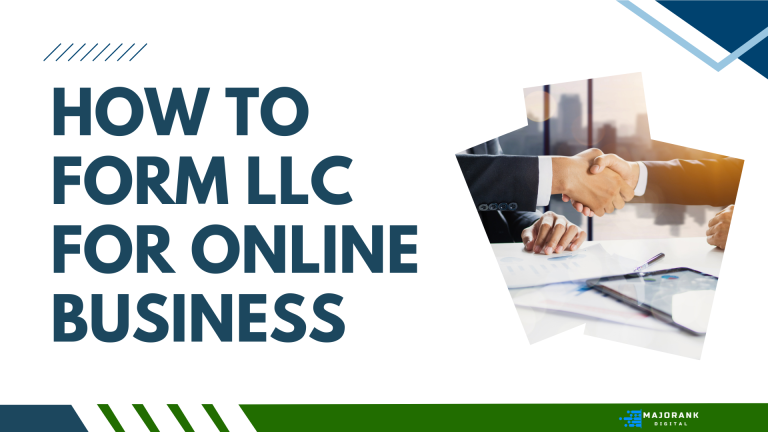
Starting a consulting business is a great way to leverage your expertise and help others solve problems, improve processes, and achieve their goals. Whether you’re offering business advice, marketing strategies, financial guidance, or specialized industry expertise, forming a Limited Liability Company (LLC) can be beneficial for your consulting venture. An LLC offers liability protection, tax advantages, and flexibility that can help you establish a successful consulting business. In this guide, we’ll walk you through the process of forming an LLC for your consulting business.
What is an LLC?
A Limited Liability Company (LLC) is a business structure that provides personal liability protection for its members while offering the tax benefits and simplicity of a sole proprietorship or partnership. Forming an LLC shields your personal assets from business liabilities and debts, meaning if your consulting business faces a lawsuit or financial issues, your personal assets like your home and car are typically protected. source
Additionally, LLCs provide pass-through taxation, which means business profits and losses are reported on the members’ personal tax returns.
Why Choose LLC for Consulting Business?
- Personal Liability Protection: An LLC helps safeguard your personal assets from business liabilities, which is particularly important in consulting, where clients may rely heavily on your advice. If a client sues you or your business accrues debts, your personal belongings (house, car, personal savings) are generally safe.
- Tax Advantages: LLCs are pass-through entities, meaning the business does not pay federal income taxes. Instead, the profits and losses of the business are reported on your personal tax return. This can simplify tax filing and reduce your overall tax burden.
- Flexible Management: LLCs provide more flexibility compared to corporations. You can structure the management and operations of the business as you see fit without needing to follow formalities such as holding board meetings or keeping extensive records.
- Professional Credibility: Forming an LLC can enhance your credibility in the consulting industry, signaling to clients that you are a legitimate, established business. This can help build trust and attract more clients.
Also read about How to Form LLC for Online Business
Steps to Form LLC for Your Consulting Business
1. Choose Your LLC Name
Select a unique name for your LLC that is not already in use in your state. The name should include “LLC” or “Limited Liability Company” and reflect your consulting brand. Ensure that the name resonates with your target audience and communicates your expertise. Before finalizing, verify its availability in your state’s business registry and as a domain name for your website.
2. Appoint a Registered Agent
A registered agent is required for receiving official legal and government documents on behalf of your LLC. The agent must have a physical address in the state where you are forming the LLC. You can appoint yourself, another member of the LLC, or hire a professional registered agent service. using a professional service like Northwest Registered Agent to ensure you receive important documents promptly and keep your address off public records.
Northwest Registered Agent is a reliable option that offers a free registered agent service for the first year. This service allows you to use their address as your business address, which is great for maintaining your privacy.
3. File Articles of Organization
To officially form your LLC, you need to file Articles of Organization with the Secretary of State or the equivalent agency in your state. This document includes important information such as your LLC’s name, address, registered agent, and the names of the members. You’ll also need to pay a filing fee, which varies by state.
4. Create an Operating Agreement
An operating agreement outlines how your LLC will be managed, including roles, responsibilities, ownership percentages, and procedures for resolving disputes. Although not required in every state, having an operating agreement is recommended. It clarifies the division between personal and business assets and helps avoid misunderstandings among members. Even if you’re the sole owner, having an operating agreement can provide clarity and legal protection.
5. Obtain an EIN (Employer Identification Number)
An EIN is a unique number assigned to your LLC by the IRS for tax purposes. You will need it to open a business bank account, file taxes, and hire employees. You can apply for an EIN for free through the IRS website.
6. Register for State Taxes and Obtain Any Necessary Permits
Depending on your state and the type of consulting services you offer, you may need to register for state taxes or obtain specific business licenses or permits. Check with your state and local government agencies to determine if any additional licenses are required for your consulting business.
7. Open a Business Bank Account
To protect your personal assets and maintain the liability protection offered by an LLC, it’s important to separate your business and personal finances. Opening a dedicated business bank account helps you manage your consulting business’s cash flow and simplifies tax reporting. Use your LLC’s EIN when opening the account.
8. Get Business Insurance
While an LLC provides personal liability protection, business insurance can offer additional safeguards. Depending on the nature of your consulting services, you may want to consider professional liability insurance (also known as errors and omissions insurance) to protect against claims of negligence or failure to deliver promised services. General liability insurance may also be a good option if you meet clients in person.
Maintaining Your LLC
Once you’ve formed your LLC, you’ll need to comply with ongoing state requirements to keep your LLC in good standing. This typically includes filing annual reports, paying state fees, and maintaining a registered agent. Failing to meet these requirements can lead to penalties or the dissolution of your LLC.
Conclusion
Forming an LLC for your consulting business offers a range of benefits, including personal liability protection, tax advantages, and increased credibility. By following the steps outlined in this guide, you can set up your LLC and focus on growing your consulting business with confidence.
Don’t forget to consult with a legal or financial professional if you have questions along the way. Starting with a strong legal foundation ensures that your consulting business is well-positioned for long-term success.






